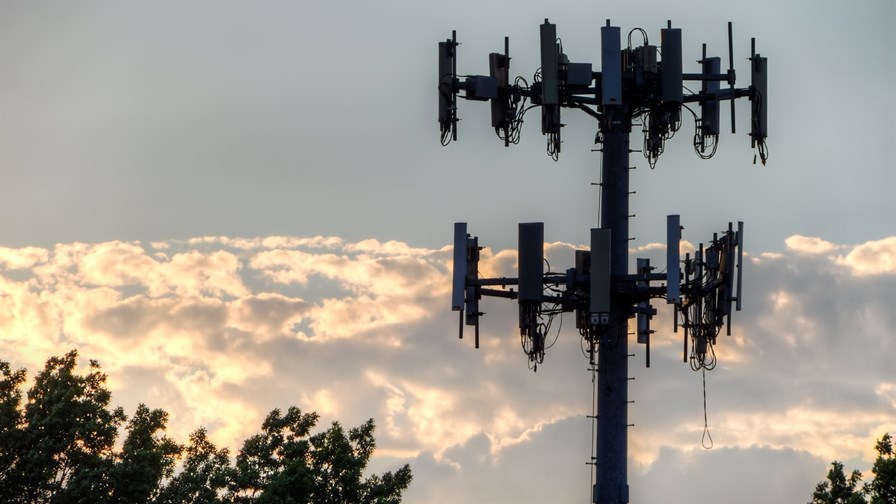
via Flickr © Razor512 (CC BY 2.0)
- The more 5G proponents extol its power and benefits the less some members of the public want it in their backyards
- The problem is that the unanswered questions about 5G radiation are... unanswered
- And the industry can’t ‘prove’ that there are no health risks
It appears that worries about the health risks allegedly posed by the implementation of new radio technologies are on the rise again. As a result many local councils in the UK are being pressured to ban new mast installations due to ‘perceived harms’ of 5G in particular and the industry seems to be stuck on what to do about it, except to muddle through and keep on pointing to the evidence. It’s perhaps a sign of the times that ‘evidence’ no longer appears to hold the sway it once had.
Of course, such health worries tend to emerge when each new radio technology is introduced. The last one was probably Wi-Fi, especially in schools. But this time, despite, or perhaps because, scientists and regulators insist that there is no evidence of any harm from the radio frequencies being deployed, the agitation against the new radio technologies continues to rise. This time it could be serious.
In case you hadn’t noticed, Saturday the 25th of January was marked down by whoever decides these things, as “The Global Day of Protest Against 5G”. As it turned out though the main risk to human health in the UK for those looking to break out their ‘ban 5G’ placards was the inclement weather - late January in the Northern Hemisphere is not an ideal time to protest, and attendance was patchy judging by the group pictures of scarf-draped protesters that appeared in regional newspapers and on local websites the next day.
But resistance there is
Two places in the UK stand out as relative hotbeds of anti-5G feeling, mostly due to worries over radiation, although other factors (unsightly masts, growing mistrust of digital corporates etc) may play a minor role.
Interestingly, both locations have recently played host to 5G demos of various types and it appears that efforts to allay fears and get the public to support 5G introduction only heightens anxiety and appears to promote the very backlash 5G advocates were hoping to avoid
First was Bristol. The historic seaport and now thriving university city in the West of England just before it turns into Wales, held a series of events back in 2018 to showcase 5G and smart city technology. A 5G-based test network was installed in the city centre as part of an ongoing joint research programme “between the University of Bristol, Bristol is Open, BT, Nokia, Cambridge Communications Systems and pureLiFi to show and evaluate how fifth-generation mobile technology will work in dense urban environments and to give Bristolians a glimpse of the 5G future.” (see - Bristol makes 5G 'tangible')
A cornucopia of new technologies - Massive MIMO, mmWave bands, network slicing, and edge computing - were all explained and where possible, demonstrated with applications such as robotics, video content, immersive gaming, connected bicycles and an autonomous car.
There was also a focus on how to use 5G and IoT to further to transform Bristol into an even smarter city than it already was. This included references to "smart" immersive tourism and connected transport.
So with all this compelling digital whizz-bangery you might expect the 5G-immersed citizenry to be enthusiastic supporters of their smart city future? Some, perhaps most, no doubt were quietly impressed.
But to another segment of the population, Bristol’s 5G focus only seems to have pushed them in the opposite direction. All that extra power and higher frequency has clearly led some to wonder about possible detrimental side-effects... “unanswered questions” about radiation seemed to come to the fore. (see YouTube video - ‘5G Technology is Coming To Bristol!).
As a result, Bristol saw one of the more notable ‘Global Day of Protest’ turn-outs and at least one local paper ran an excited ongoing story: ‘Live updates: Anti-5G protest takes place in Bristol city centre’. The paper pointed out that more than 4,000 people signed a petition urging Bristol City Council to switch off the network over radiation fears last year.” And on the weekend it ran a story with a picture of about 30 activists, all wrapped up against the cold and in protest mode.
A bigger and more immediate reaction to 5G was stimulated last year in April at the famous Glastonbury Music Festival. Mobile operator EE had decided to put up masts and use 5G (but not mmWave) to distribute Wi-Fi and cellular service to access points around the venue, all the while emphasising the volume of data that it expected to put through (see - EE 5G claims prompt tin foil hat backlash).
That created a minor anti-5G furore amongst music fans at the festival. And again the incident seems to have had a lasting legacy. Far from impressing local residents about the wonders of 5G, Glastonbury Town councillors lined up to oppose the introduction of 5G technology until further information has been obtained on the health effects after pressure from residents.
It should be clear by now that simply arguing the rational case for 5G roll-out doesn’t work by itself and may make matters worse by hardening opposition on the basis that fears aren’t being addressed.
Calming the rhetoric and lowering the pro-5G hype might be a good place to start.
Email Newsletters
Sign up to receive TelecomTV's top news and videos, plus exclusive subscriber-only content direct to your inbox.




